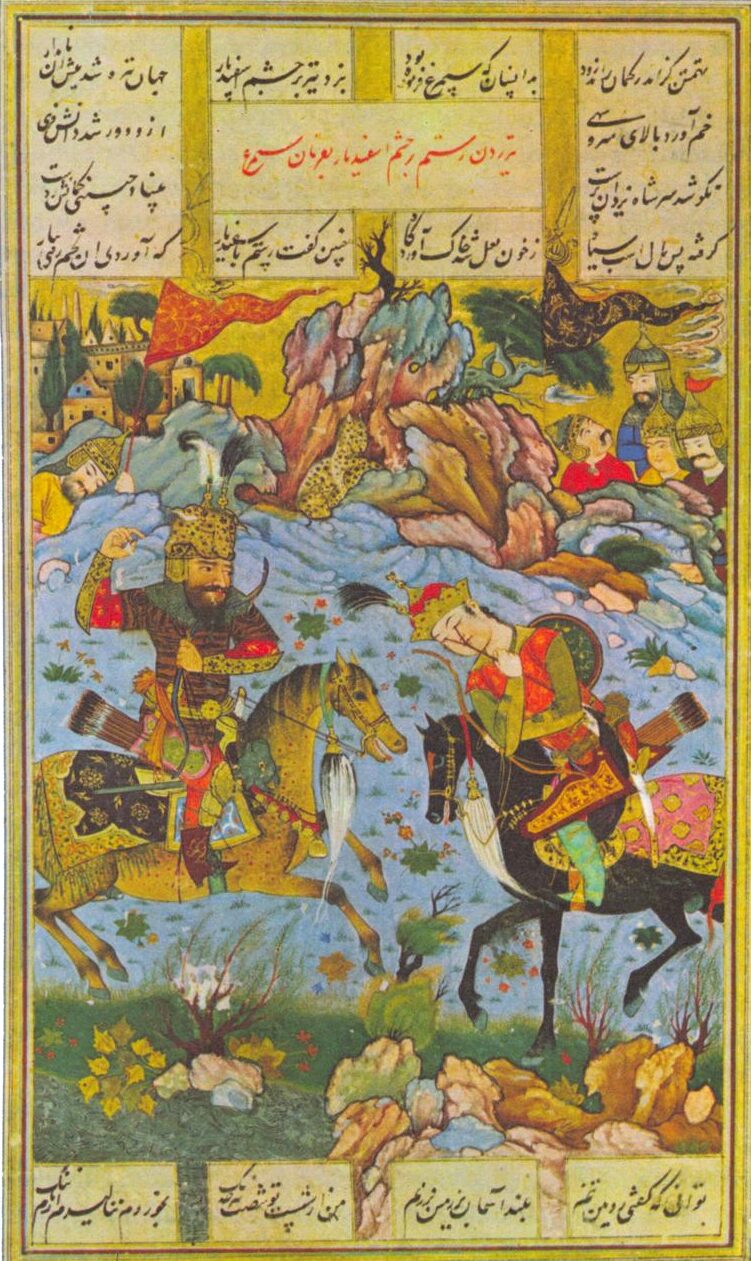Continuing our journey through Persian literary icons, leading up to the release of our translated poetry collection, today we spotlight one of the most formidable heroes in Persian mythology: Rostam.
Rostam is the central hero of the Shahnameh, the epic masterpiece composed by the 10th-century Persian poet Ferdowsi. As the strongest and most revered warrior of Iran, Rostam embodies the ideal hero—fearless, loyal, and noble. His exploits form the backbone of the Shahnameh, and his character is revered for his bravery, wisdom, and unwavering dedication to his homeland.
Rostam’s story is marked by a series of legendary feats, from his Seven Labors (Haft Khan), where he battles mythical creatures and overcomes impossible challenges, to his role in defending Iran against its most dangerous enemies. Among these adventures, his battle with the White Demon stands out as a defining moment. The battle symbolizes his strength, but also his role as a protector of the kingdom, embodying the virtues of an ideal warrior in Persian mythology.
However, despite his immense power, Rostam is also a deeply tragic figure. His loyalty to Iran often puts him in complex moral situations, where his personal desires are pitted against his duty. This internal conflict is most poignantly captured in his relationship with his son, Sohrab. Unknowingly, Rostam is forced to fight Sohrab in battle, leading to one of the most heartbreaking moments in Persian literature when he realizes the young warrior he has mortally wounded is his own son. This episode adds layers to his character, showing that even the mightiest of heroes are not immune to the tragic hand of fate.
Rostam’s depiction in Persian art often shows him as a towering figure in a lion-skin cloak, symbolizing his prowess and the many beasts he has conquered. He rides Rakhsh, his loyal, equally legendary steed, a horse capable of feats as great as the hero himself.
While he represents valor, strength, and the unwavering defense of justice, Rostam’s story also carries a more profound message about the cost of heroism. For all his victories, he is unable to escape the tragedies that life and destiny throw his way. Like Majnun, who symbolizes unyielding love, Rostam symbolizes the burdens of duty and the personal sacrifices required to uphold honor and loyalty.
Stay with us for more brief glimpses into the timeless characters of Persian literature. Our upcoming collection will bring the epic and lyrical verses of the Persian literary tradition to life, offering a fresh window into these stories that continue to inspire.

